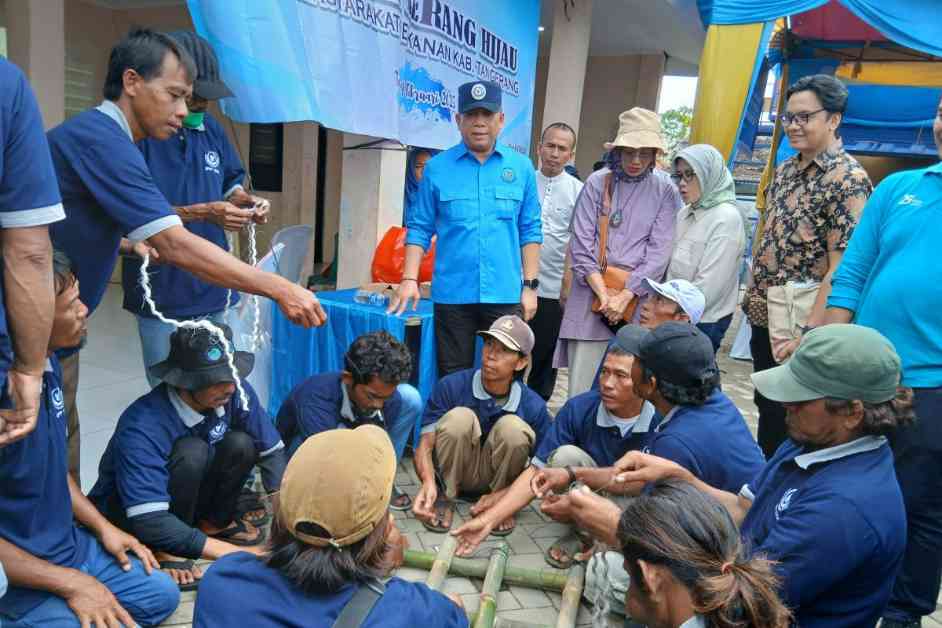In a bid to support the fishermen affected by the 30.16-kilometer sea fence in Tangerang District, Banten, the Ministry of Marine Affairs and Fisheries has rolled out a series of assistance programs. Lotharia Latif, the ministry’s Director General of Capture Fisheries, emphasized the importance of these initiatives in fostering a robust marine product ecosystem that encompasses both upstream and downstream sectors. This move not only aims to mitigate the impact of the sea fence on local fishermen but also to empower them with the necessary skills and resources to thrive in the evolving maritime landscape.
Supporting Fishermen through Training and Equipment
The assistance provided by the ministry includes a range of programs designed to equip fishermen with the tools needed to navigate the challenges posed by the sea fence. Latif highlighted key components of the assistance, such as a green mussel cultivation training program, fishing safety equipment, and ship repair training. These resources are crucial in ensuring the safety and productivity of fishermen as they continue their operations in the affected waters.
Moreover, the ministry has extended its support to fishermen at three fish auction centers in Tanjung Pasir, Kronjo, and Pakuhaji. By offering training programs and distributing essential supplies, such as life jackets, sailing equipment, cooler boxes, and pumps, the ministry is not only addressing immediate needs but also fostering a culture of resilience and innovation within the local fishing communities. Additionally, the provision of fish processing training for the wives of fishermen underscores the holistic approach taken by the ministry to uplift the entire ecosystem of marine livelihoods.
Empowering Future Generations through Education
In a bid to secure a sustainable future for Indonesian fishermen, the ministry has awarded scholarships to 10 children of fishermen, allowing them to pursue their education at the ministry’s polytechnics free of charge. This initiative not only aims to develop a new generation of skilled professionals in the fisheries sector but also underscores the government’s commitment to investing in human capital as a means of unlocking the full potential of natural resources. By providing access to quality education, the ministry is laying the foundation for improved living standards and economic opportunities for Indonesian fishermen and their families.
Looking ahead, the ministry remains steadfast in its commitment to supporting fishermen and their families through capacity-building initiatives and educational opportunities. By nurturing talent and fostering a culture of continuous learning, the ministry aims to create a sustainable and thriving marine industry that benefits all stakeholders involved.
As the Indonesian Ombudsman Representative Office for Banten Province reported significant losses incurred by local fishermen due to the sea fence, the government has taken decisive steps to address the situation. The Indonesian Navy’s removal of 20 kilometers of the sea fence and the ATR Ministry’s decision to annul right-to-build and ownership certificates for submerged land plots where the fence is located signal a coordinated effort to rectify the challenges faced by fishermen in Tangerang waters.
The ongoing support and proactive measures undertaken by the government reflect a deep commitment to the welfare and prosperity of local fishermen. By combining short-term assistance with long-term educational initiatives, the ministry is not only responding to immediate needs but also paving the way for a sustainable and thriving marine industry in the region. Through collaboration and strategic interventions, Indonesian fishermen are poised to navigate the complexities of the sea fence and emerge stronger and more resilient in the face of adversity.






















